As the proud owner of an adorable ball of fur, you may be wondering about feline diets. You know that cats are big fans of tasty chicken, but what about the rest? Can they eat anything else? Can they eat any kind of meat and is it good for them? Can cats eat turkey? Let’s look into it.
Considering your Cat’s Diet
Obviously, most house cats have a diet that mainly consists of store-bought food that can either be wet or dry. The wet kind tends to come in cans or smaller packets, while dry food can be stored for longer after being opened. Dry food comes in boxes, bigger or smaller and can even be bought in bulk. It is recommended that felines have a healthy intake of both wet and dry food and that the two kinds are alternated once in a while, since a diet that consists exclusively of dry food can lead to various health problems.
In addition, in order to make sure your cat remains as healthy as possible and does not run the risk of becoming obese, you have to set feeding times and get him accustomed to only eat two to three times a day. This means that you are going to have to work your schedule not only around your own feeding times, but also around your cat’s. It helps if you feed your pet at the same time you make your own food, for the sake of convenience and the benefit of the appropriate times.
Can Cats Eat Human Food?
Yes and no. There are certain foods that you should never feed to cats or any other pet, for that matter. These foods are mostly chocolates (except to rats that can tolerate it) which are notoriously toxic, especially to canines. Cats should also not have ice cream, raisins, garlic, alcohol, kelp, grapes, caffeine or treats that contain high sugar content. Your cat can eat eggs, veggies and some can tolerate dairy. However, most cats are lactose intolerant, especially adult cats. Of course, everything needs to be in moderation because large amounts of any of these products can be detrimental to your cat’s health.
Vegetables are alright to feed it to your furry friend but keep in mind that felines cannot have a vegetarian or vegan diet. As carnivores, they require protein found in meat in order to remain healthy and happy. Protein should come from a meat source as often as possible, and be cooked in a way that bacteria are not present. Vegetables that your cat can safely consume include chopped greens, steamed broccoli, winter squash or baked carrots. Remember to wash everything and never feed your cat raw veggies, as they are indigestible. As for meat, the same is usually true.
Can Cats Eat Turkey or Not?
The good news for your cat is that yes, it can enjoy the early Thanksgiving dinner, along with the rest of the family. Both a raw and cooked turkey is safe for cats. There are turkey flavors of cat food and cat treats, and turkey is usually the preferred taste of moist food for many cats, so what about the real thing? Cats should love the whole food of turkey in its natural (cooked) state, and not as an added ingredient in a compound method of food production.
When it comes to cooked turkey, you are going to want to avoid serving it with a sauce or butter or stuffed with anything else. Cats should not be offered human food that has been seasoned as many seasons are poisonous to cats. Garlic and onion are the most potentially deadly spices and these should be avoided being put on the parts of a turkey your cat will be eating. Avoid using butter in these areas a s well because butter is a product that is too fatty and high in calories for your cat, and nothing good comes from your at ingesting butter. Salt should also be avoided. Cats do not need added sodium in their diet and too much sodium can lead to heart problems and high blood pressure in your cat.
Also, whenever you feed turkey to your cat, make sure you remove the bones first as the splinters can hurt it. Turkey bones can split, and cause punctures in your cat’s esophagus and stomach lining. These punctures can be fatal. Bones can also be choking hazards and create intestinal blockages, so be mindful of the turkey bones and keeping them away from your cat if possible.
Other than that, turkey is a wonderful choice of food for your feline, not only because it is meat which is natural for cats to eat, but because turkey meat actually has many health benefits.
The Benefits of Turkey Meat
Your cat can actually benefit greatly from turkey meat consumption, it contains many of the nutrients felines need in order to have a healthy development. Turkey meat not only provides the meat protein they require but also taurine, which their bodies cannot produce naturally. In fact, there are various store-bought products that you can buy, all containing turkey.
Turkey is a meat, and is a bird, both of which is appealing to a cat and may trigger their instinct for hunting and gathering food in the wild. You may offer a bit of turkey to your cat at Thanksgiving and allow the cat the fantasy of being a big cat in the wild eating their prey.
Can Turkey be Dangerous for Cats?
Besides the fact that you have to make sure to take the bones out first for the cats not hurt themselves, you also have to be aware of how much turkey they consume. Cooked turkey bones can splinter and pose a great danger to your cat.
It is fine to give them a small piece at dinner or let them eat some leftovers. Do not allow the cats to eat too much because like most things that are not consumed in moderation, may make them sick. If your cat has gotten into leftovers, cleaned plates, or dug in the trash, it is possible your kitty has eaten more than his/her small share of turkey. Keep an eye on your cat if your think s/he has overindulged, and take care of them to ensure their stomach ache passes. If your cat looks to be in pain or behaves in an odd manner after eating turkey, see your vet as soon as possible.
Conclusion
In conclusion, turkey is a great choice of food for your feline pets, it’s tasty, natural and it provides them with the nutrients they so greatly require. You don’t have to exclude your cat from Thanksgiving leftovers! However, keep in mind that you have to pay attention to the amount of turkey you feed to your cat and make sure that first and foremost, you take out all the bones. Otherwise, the cat might hurt itself with small, but sharp pieces of bone that can get stuck in its throat or damage its gums.
Just remember, before offering your cat human food, be sure to speak to your vet and adhere to their advice on the foods your pet should be eating. Cats do not need human food and most do not prefer human food either. Cats are usually happy eating just cat food. Adding a bit of meat or seafood to their bowl on occasion will surely please your cat, but doing so in not necessary. At Thanksgiving time, your cat may have an interest in your turkey, and this is okay when given in moderation.
Related articles:
References:
http://www.cancats.net/can-cats-eat-turkey/
http://www.animalplanet.com/pets/2-eggs/
http://pets.webmd.com/cats/guide/diet-nutrition-feline

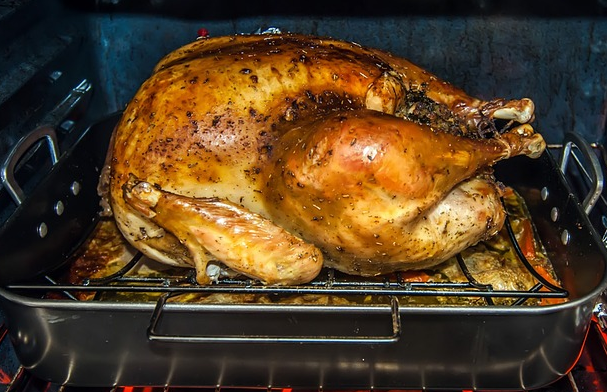
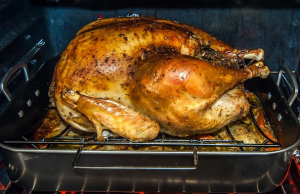

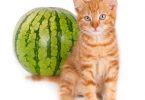

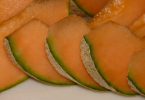

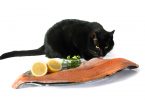
Leave a Comment